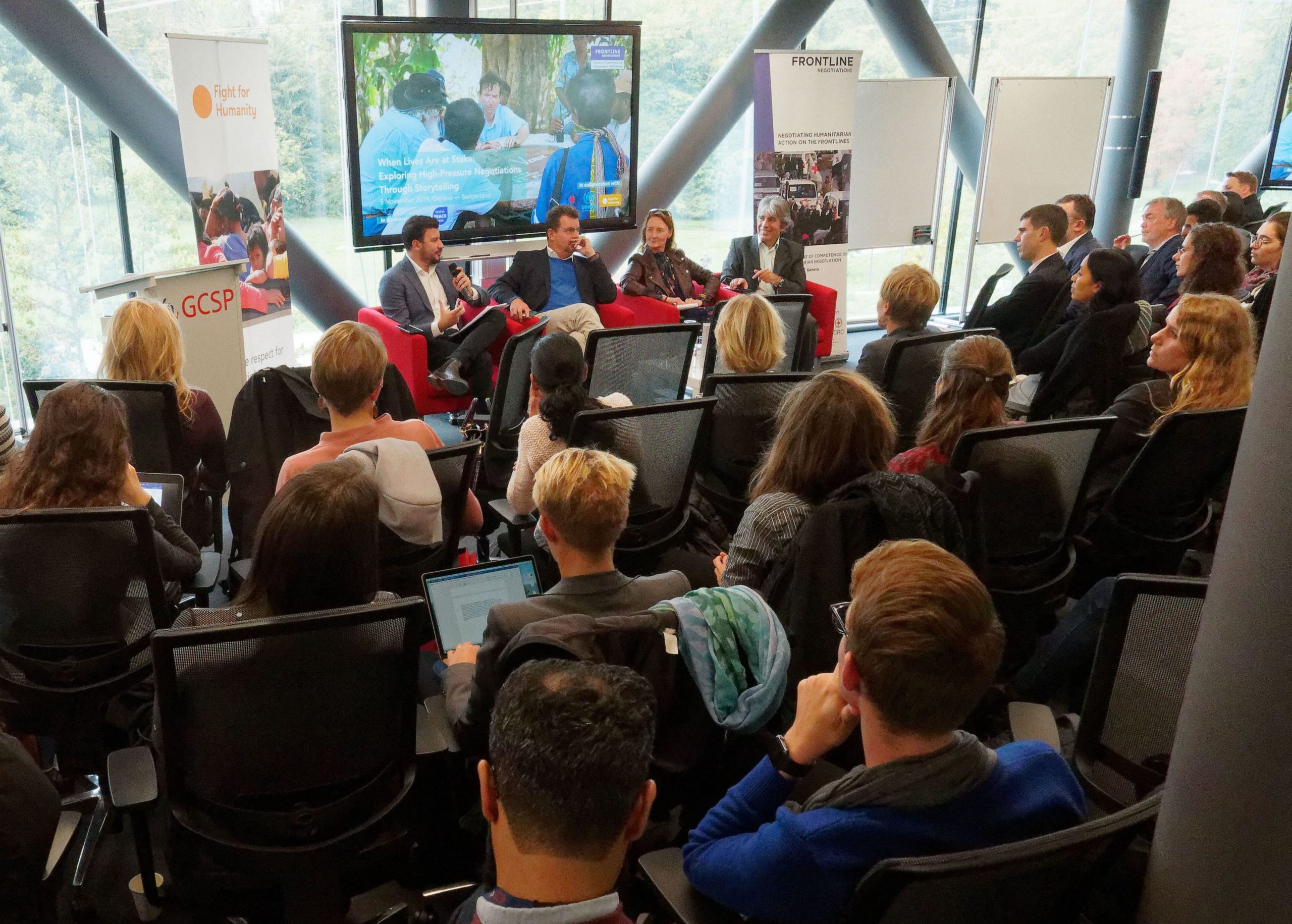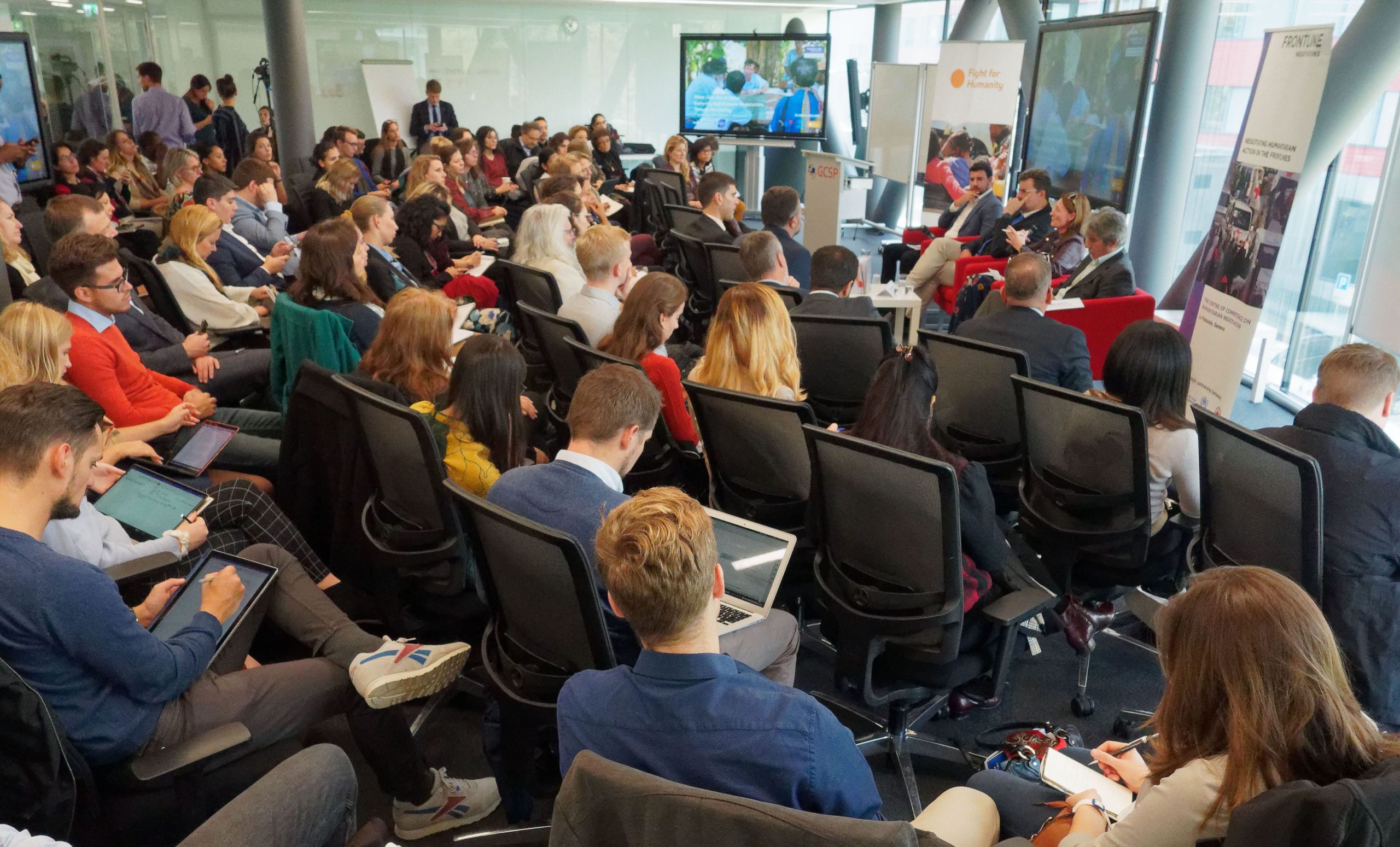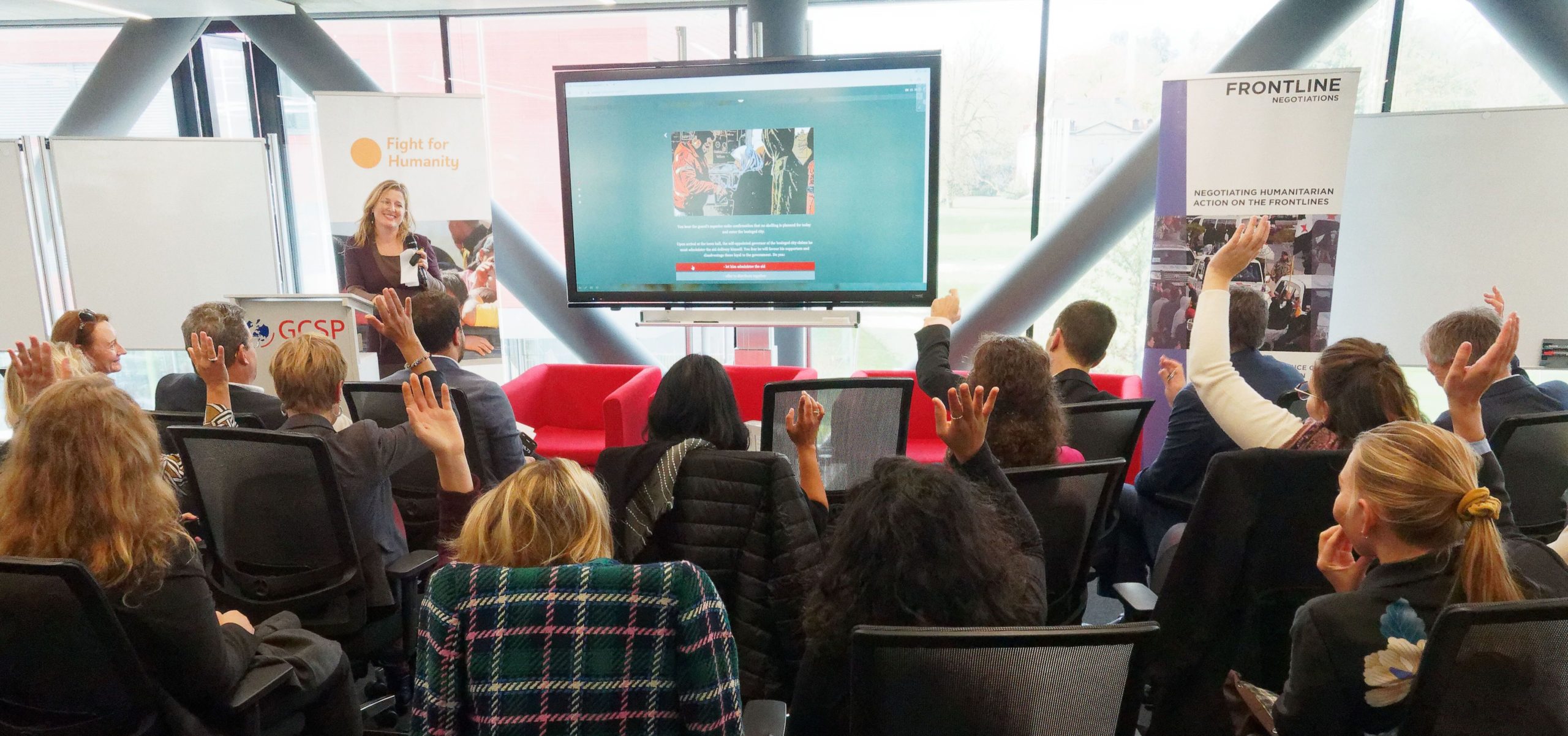
Karim Hafez, CCHN Negotiation Support Specialist – Middle East moderated Voices from The Field session. (Photo Credit: Nicolas Sion/FFH)
At the Geneva Peace Week 2019, the CCHN together with ICRC, UNHCR and Fight for Humanity organized a joint event on humanitarian negotiation under pressure. The event aimed to demonstrate how frontline negotiations and humanitarian issues more broadly are intertwined with building peace through dialogue, negotiation, advocacy and public communication.
“When lives are at stake: Exploring high-pressure negotiations through storytelling” took place at the Geneva Centre for Security Policy (GCSP) on 5 November from 13:30-15:00. The event was live-streamed on YouTube and Twitter to enable audiences outside Geneva to tune in.

The panel speakers shared their stories when negotiated under pressure at the frontlines. (Photo Credit: Nicolas Sion/FFH)
Voices from the Field
During the first part of the event, the speakers shared personal stories about how they had dealt with high-pressure negotiations in different operational settings.
ICRC Senior Crisis Manager, Pascal Hundt told a story about a highly sensitive negotiation about the evacuation of foreign workers who found themselves stuck on the other side of the frontline. “You have to be ready from the beginning for a long negotiation,” Hundt said. “Mentally, you prepare yourself and your team. Get ready to be confronted with extremely difficult choices and ethical dilemmas, and to know your interlocutors and stakeholders, as well as their interests.”
The second speaker, Julie Dunphy, UNHCR Senior Policy & Liaison Officer (Field Security Service) recounted a negotiation with military commanders surrounding a return operation. Drawing on the CCHN’s negotiation toolkit, Dunphy explained how she put the tools into practice. “The beauty of the models and the tools developed by the CCHN is that they allow you and your organization to develop a tactical plan for the negotiation through continually analysing the context, through to considering the interests/motives of the other party. It requires you to consider your operation and organization’s strategic objectives which ensures you are also fully aligned and have the support of your management as you negotiate.”
The Geneva Peace Week 2019 also allowed the CCHN to collaborate for the first time with Fight for Humanity. Its Co-Director and Founder, Mehmet Balci shared his negotiation experience involving Kurdish actors in Iraq in order to get access to North Syria. Before moving on to the last part of the event, the audience watched a video of frontline negotiators reflecting on the challenges and dilemmas they encounter as they negotiate under pressure.

Nicolas Eva Fell, ICRC Audiovisual Producer asked the audience to take actions to negotiate in the field using the ICRC interactive storytelling project. (Photo Credit: Nicolas Sion/FFH)
We Negotiate
In the last part of the event, the audience was asked to take action itself in the course of an interactive presentation about “How well could you negotiate on the frontline?”, a project created by the ICRC. The storyline is inspired by the CCHN Field Manual on Frontline Humanitarian Negotiation.
“This interactive storytelling project that we created together was a great way of talking about the work of frontline negotiators,” said Nicola Eva Fell, ICRC Video Producer. “This work has all the elements of strong storytelling: the stakes are high, it’s dangerous and secretive, and it really matters if it works.” With more than 2 million engagements, the interactive thread became the ICRC’s most-liked tweet ever.
After her presentation, Fell asked the other speakers to think about whether the scenarios of the storytelling project reflected their own experiences. Before opening the floor for the Q&A, the CCHN presented a video of its frontline community reactions to the interactive storytelling project.
